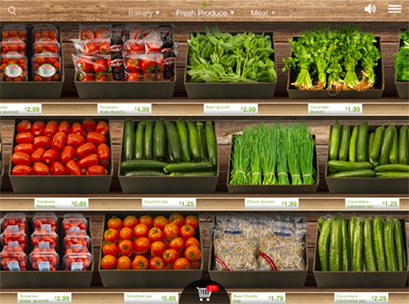Online grocery market set for massive growth

A new report from Nielsen predicts the online grocery market will reach $2 billion in Australia in the next five years, as young families increasingly go online to stock up on pantry staples and pet and baby products.
But even while twenty per cent of Australians have purchased online groceries in the past year, the market still represents a tiny fraction (just 2 per cent) of overall grocery sales.
Some major players in the space are looking for ways to overcome the obstacles that have kept more shoppers from buying groceries online, and grab a slice of the $2 billion prize in the process.
Grocery Run, which is part of the Catch Group, plans to offer same-day dispatch on orders within the next six months and could guarantee next-day dispatch to fulfilment partner Australia Post within the next three months, according to an interview Grocery Run general manager Kolman Polak gave to our sister publication Inside Retail Weekly this week.
The online supermarket offers name brand pantry items at discount prices and currently accounts for 9.8 per cent of the e-commerce grocery market, according to Nielsen.
(Coles and Woolworths together represent 88.5 per cent of the online grocery market.)
Grocery Run has expanded its range by 23 per cent in the last 12 months and will continue to do so in future, Polak told IRW.
“I’ve always wanted to go down that path. It’s inevitable that at some point, hopefully in the next couple of years, we’ll start looking at fresh and frozen,” he said. “If we can’t give customers the right offer, we won’t go there.”
The Nielsen data back up Grocery Run’s future move into fresh food. According to the report, only 9 per cent of respondents in the US and Europe have purchased fresh groceries online, and the picture is much the same in Australia.
Pantry items, pet, baby care and frozen items feature heavily in online shopping baskets, while perishable items that customers tend to inspect, such as salad, bread, fruit and fresh meat, are purchased more frequently in-store.
Online grocery retailers have attempted to overcome this barrier by offering click and collect, temperature-controlled storage lockers at train stations, shorter delivery windows and increased transparency into the supply chain.
Meanwhile, food box and meal prep providers – like Hello Fresh and Aussie Farmers Direct – tend to do better than others in selling fresh food online.
They also account for the second-highest total online grocery spend ($1,084), after Coles and Woolworths, despite accounting for just 1.6 per cent of the online grocery market.
Aussie Farmers Direct has previously told Internet Retailing that its logistics network, which sees the online retailer delivering perishable meat, dairy and produce items to customers’ doorsteps twice a week, is its strongest asset in the increasingly competitive online grocery market.
Aussie Farmers Direct has also been ramping up its offering in recent months, launching an online supermarket for pantry staples, The General Store, in August 2016, and expanding its range of meal kits.
In February, the retailer kicked off a national marketing campaign with a series of TV commercials, a marked departure from its usual strategy of digital search and word-of-mouth.
Jim Cooper, a spokesperson for Aussie Farmers Direct at the time, though he has since left the company, said the effort to raise brand awareness had nothing to do with the impending arrival of AmazonFresh.
“Having another big gorilla join the market will be business as usual for us. We think the nature of our offer will still resonate with a significant portion of the community,” he said.
Catch Group’s CEO Nati Harpaz is the chairman of Octomedia, the parent company of Internet Retailing.
Comment Manually
You must be logged in to post a comment.

Comments
alex1
I think such significant increase of online grocery market requires a serious shift of consumers habits: weekly supermarket shopping has to be replaced by more frequent run to local stores for fresh food and buying the rest online. If you go to super anyway you need to have a serious incentive to buy things that you can buy during weekly shopping online.
It may happen if less people will use cars and hence have more headache to deliver heavy bags.